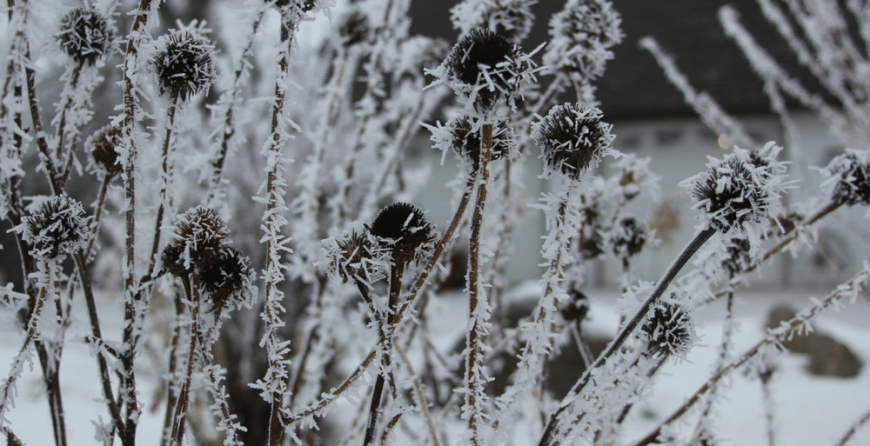 Are you planning on shutting down your organic garden for the winter? Winter gardening – even if you’re going organic – is far easier than you’d think. Instead of hanging up your gardening gloves at the end of September, invest in organic produce that thrives in the winter.
Are you planning on shutting down your organic garden for the winter? Winter gardening – even if you’re going organic – is far easier than you’d think. Instead of hanging up your gardening gloves at the end of September, invest in organic produce that thrives in the winter.
Whether you’re new to winter gardening or organic gardening in general, we’ve put together some tips to help you take care of your organic garden in the dead of winter.
1. Choose plants that thrive in cooler temperatures
Ensure you’re harvesting delicious crops in February while your neighbors sit and wait for spring by planting plants that love the cooler temperatures. Onions, shallots, carrots, beets, and spinach are among the plants that take care of themselves and excel in the winter. What’s even better about these winter plants is the fact that they concentrate their sugars in cooler weather, resulting in better flavor in the fall and winter.
Even if you’re located in the northernmost parts of the United States, you’ll find a wide variety of vegetables that can be grown in the winter.
2. Utilize row covers and cold frames
If you’re looking to keep some of your plants at a level of gentle dormancy, take advantage of row covers and cold frames. While these are not greenhouses and will not ensure your organic tropical plants will thrive, they will allow for protection against very harsh winter temperatures.
To keep your tender plants in a cold frame, cut it back as much as possible before the first frost falls. If you haven’t moved the plant into a container, be sure to put it in a large plastic pot, lifting and sinking the root mass in the process.
Once your tender plants are securely stored in the cold frame, be sure to keep the soil relatively moist, but not overly wet, in order to maintain proper weather conditions. Due to the cooler winter temperatures, the plants won’t need much water. If you overwater them, you’ll find out because they’ll begin to rot. Keep in mind that another purpose in using a cold frame is to avoid letting too much sun in, otherwise, they’ll be encouraged to actively grow. The idea is to keep them at a gentle, sustainable level of dormancy.
If you live in a climate that doesn’t have very harsh winters, your garden will benefit from the use of row covers, which are easy to install.
3. Avoid Toxic Garden Chemicals
As an organic gardener, chances are you avoid harmful pesticides, herbicides, and fungicides altogether. After all, one of the greatest benefits of being a home organic gardener is the ability to control what touches and doesn’t touch your plants.
What you should be aware of is the fact that these products can bioaccumulate. Once toxins such as herbicides, pesticides, and fungicides are put into our plants and soil, they are very difficult to eliminate. Unfortunately, tons of these poisons are sprayed on farms and then run off into rivers and streams, ending up in lakes, rivers, and oceans. Because the damage from this continual toxic runoff is difficult to undo, you might have trouble eliminating them from your garden.
If your home’s previous owners gardened, or you’re located near a farm, you may want to consider testing and/or moving your dirt. The good news is that simply by gardening organically, you’re contributing to the solution to spraying such harmful toxins.
4. Start Planning in the Spring
As with any garden, planning ahead is key. The goal for an organic winter garden is to harvest in winter, which means you should start planning in the spring. Create a list of plants you would like to have in your winter garden and prepare so that by the time October rolls around, you’re harvesting garlic out of cloves. Keep in mind that the main goal of winter gardening is essentially extending the harvesting season.
Once you’ve determined what plants you want to have in your organic winter garden, be sure to find out the projected first frost date. It’s important to have your plants established before the first frost happens, otherwise subjecting them to a light frost before they’re ready can kill them off.
By following these tips and planning ahead, you’ll be well on your way to harvesting delicious, crisp organic produce in the middle of winter. Enjoy!


